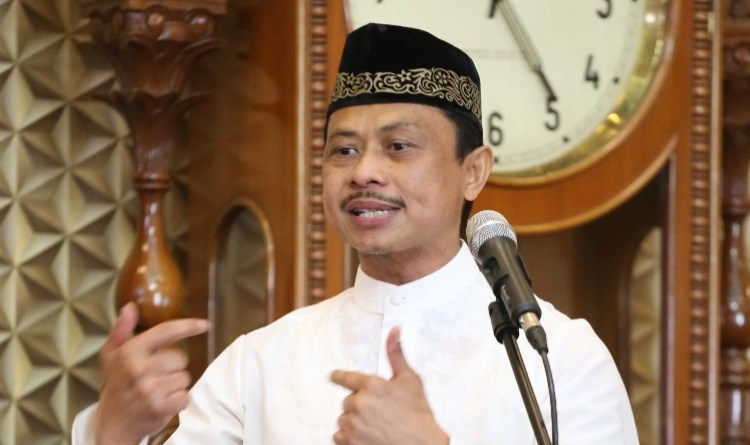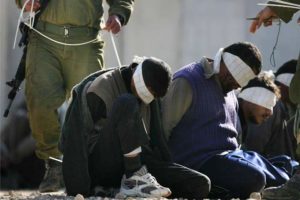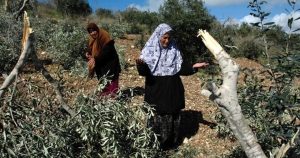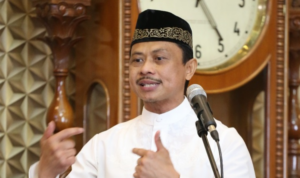By: Shamsi Ali, President of Nusantara Foundation, New York
Talking about youth is of paramount importance because they are the future of the community. But they aren’t only important for the future… They are important now in the present.
We must acknowledge how blessed American Muslims are. With all the issues this country is struggling with, America is stil a land of opportunities in almost all aspects of life. America is still the most powerful country economically, politically, and most importantly militarily.
But what I specifically mean mostly by the “opportunities” here is that American Muslims have wide opportunities to grow and develop themselves. And that is for a simple reason. America is still a land of freedom. And wherever Islam finds freedom, it will grow and develop strongly and healthily. I think “Islam and freedom are like fish and water”.
Also Read: Be Careful of the Trap of Deploying Peacekeeping Forces to Gaza
This has been a fact. American Muslims are relatively more educated than average Americans, richer than average Americans, and more importantly 44% of American Muslims are less than 44 years old. That means they are young, educated and economically stable, making the future of the community shining and optimistic.
Let’s see some examples. In New York City’s special high schools, such as Styvesent, Brooklyn Tech, Bronx science and other similar schools, many of their students are Muslims and even huffaz of the Qur’an. In politics, we have some young, mostly Muslim women; Ilhan Omar and Rashida Tlaib in US Congress, Shahana Hanif in NYC Council, Nabila Syed in Illinois State Assembly to mention a few.
In other words, American Muslims have a very wide opportunity to be strong and play an important role to shape America. The New York City Muslim Community is possibly the best example of how Muslim New Yorkers play important roles in building and shaping this world capital. Take a walk around the city and you will find most of the food vendors are halal food.
Muslim Youth Challenges
Also Read: The Forty-Four-Days of Glory: Azerbaijan’s Struggle for Justice and Peace
Having said that, we must also acknowledge the very sad realities about our youth in this country. In a possibly dramatic expression I usually call it a “Generational loss”.
Here are some challenges the American Muslim youth are facing:
First, losing their confidence in the religion.
Many American Muslim youth lose their confidence in their faith. They may still have the faith and believe in the religion but due to some circumstances they lose confidence in the religion. They are questioning if this religion is relevant to their life in America or in the West in general.
Also Read: Palestine Solidarity Month: A Collective Movement for Al-Aqsa and Palestine’s Freedom
Two issues normally occur in their minds. One, the religion seemingly can not support them to pursue their dreams. Two, the religion is not able to respond to many life matters in a logical and rational manner. Often this reality is undetectable in our youth. But clearly they have this in the back of their heads.
The most responsible ones on this issue are the so called “religious leaders”; Imams, Maulanas, sheikhs, etc. Either because they are not capable to respond or because they don’t know how to communicate the religion to the youth, they are losing some of our youth.
Second, poisonous twisted social moral views.
The American Muslim youth are facing twisted and poisonous social moral views that clearly paradoxical to the Islamic moral views. Take for instance, the issue of freedom and the definition of gender.
Also Read: Hassan al-Turabi: A Controversial Thinker from Sudan
The concept of freedom in America is understood as exercising one’s right without any limit. Sadly this notion is often embraced with hypocrisy. You are free to burn a holy book (read Quran). But you will be punished when burn a country’s flag.
And our Muslim youth in America are forced by the societal environment to accept this view. That as a part of the freedom expression you can not be limited by certain rules and regulations, including religious ones.
Another example which is even more confusing is the definition of gender. Our young Muslims are exposed into this confusing definition that human gender is not defined any more by physical realities. Instead it is defined by human societal imagination.
These are just two examples of twisted social moral values that clearly poison our Muslim youth minds. Even worse, if you don’t agree with these twisted moral values, you will be seen as transgressing human rights or “freedom of choice.”
Also Read: Who Exactly is the RSF Group Shaking Sudan?
Third, home (parents) pressure
American Muslim youth are also facing tremendous challenges at home. I call that internal pressure. Often because of the parent’s religious and cultural views of life.
There are two types of parental behaviors. One, a behavior of not caring. Two, an attitude of not knowing what or how. Some parents don’t care at all with their children are concerned about. The just take if for granted that being Muslims, everything will be fine. Some others have concerns. But they are blind to what and how to deal with their youth. One of the issue parents are facing is the issue of communication. There is a gap communication between the parents and their children.
Fourth, societal environment.
Also Read: The Two-State Solution (Palestine–Israel) in Historical Perspective
This reminds us a hadith of Rasulullah that said: “all children are born with purity. It’s because of their ‘abwaah’ (which is commonly translated as parents) that makes them either Jewish, Christian, or fire worshippers”. These days, the word “abwaah” is not understood as parents any more. It is more relevant to “society or environment where the children are living”.
Our Muslim youth in America are influenced more by the schools, or friends whom sometimes they trust more than their parents. The public policy regarding issues relevant to their lives, such as the legality of marijuana in New York, also affect our youth. Also by the social media booming become another strong factor in shaping the lives of our youth in America.
Don’t forget the general life pressures our youth are facing. They are living in a society where life competition is so deep and stressful. Our youth feel the pressure to be as successful as others around them. Often they compare themselves to others and feel the pressure of the competition.
Fifth, mental health issue
Also Read: Enchanted by K-Dramas, Dragged into Slander: Time for Muslims to Rise!
Because of all above issues American Muslim Youth are facing, many are affected by mental health problems. Yes, they are Muslims. But they are also humans. Being humans they face every challenge of life as others do.
As an example, last year in 2022, there were 77 Bangladeshi youth alone who committed suicide in America. And this is only those who are reported officially to the government offices.
Another example is a 19 years old Albanian Muslim boy who stabbed his mother. And the reason is very silly. The mother reminded him to pray when he came home. I personally met this young boy and asked him the reason. And this is what he told me: “I am truly sorry for my mom. I was bullied outside of the house. And when I came home my mother kinda forced me to do things she wanted me to do”.
These are just two examples representing the mental health issues that our youth are experiencing. It’s real and threatening. Unfortunately some Muslims, including religious leaders, still consider that mental health issues are a non Islamic issue. They view it as a western construct.
Also Read: Creating Opportunity and Avoiding Misery; Lesson Learn on Waste Recycling Issue
What to do to prevent the damage
In responding to the above challenges and crisis our youth are facing, these are the steps to be taken.
One, strive to grow faith in their hearts.
Iman or faith is the foundation of life. Our faith is real. Not a slogan. Our belief in Allah as the powerful and controller of everything will ease all those pressures of life.
Also Read: Between the Treaty of Hudaybiyyah and Ceasefire in Gaza
“And so whoever disbelieves in ‘toghut’ and believes in Allah, then he has grasped the most trustworthy handhold that will never break”.
Two, attention with rahmah (compassion).
Some years ago I read an article in Newsweek Magazine, it said : “This American generation is lonely and angry”. In other words, the American youth are angry and lonely.
One of the reason mentioned was that these children feel abandoned by their parents. The children do not get enough of their parents’ attention and love. In return they are angry and feeling lonely in their lives. As a consequence, we see some of them turn to violence. Several killings and mass shootings in America in the past were carried out by young Americans.
Also Read: Peace Cannot Be Achieved Without a Palestinian State
Therefore, Muslim parents must fully pay attention to their children and with compassion (rahmah). As we hope that our children will pray for their parents: “O Allah forgive me and my parents and have mercy on them as they had taken care of me in my childhood”.
Three, home must be the Center of three ‘Miims’.
In Islam everything starts from home, including our children education, peace and joy. If they don’t get all these at home they will search elsewhere.
Three Miims are: Madrasah, Masjid, and Musallaa.
Madrasah means our children must get their basic Islamic education at home.
Masjid means our home must be a center for the children to obey Allah.
Musallaa means our home must be a center of entertainment, where our children will feel joy and peace. Home is their Jannah.
Without those there Miims at home, our children will find them somewhere else, and most probably they will find things which are paradoxical to the values of Islam.
Four, parents and community leaders must equip and update themselves.
Often parents and religious/community leaders feel that they have enough to handle our youth issues. The time and circumstances change drastically. And if the parents and community leaders do not update themselves with new developments and information, they will be left out and fail to respond to the demands and needs of our youth.
Fifth, Our Community mindset about masajid must change.
Many of us understand narrowly and limitedly that masajid (mosques) are places only to perform ritual prayers. Our youth hence see this as not important because they can pray anywhere; at homes, schools, or even on the side of the street.
Only when we turn our masajid to a more communal and social function then our youth will see it as an important place for them to associate with. They will consider the masajid as place where they belong, as part of their community. Otherwise, they will see the masajid as places for uncles and aunties (elderly people) only.
The point I wanted to deliver is to let’s make our masajid an alternative environment for our youth, where they can come and be safe and grow as Muslims and Americans.
Sixth, helping our youth finding their life partners.
This is very crucial. Often our youth make wrong choices, or don’t find partners at all. And this is due to a parental attitude of “taking for granted”. Parents think that the youth can and will be easily find their own life partners (husband or wife).
Parents and community must collaborate to ensure that our youth can find suitable partners as Islam allows. Matrimonial service is just one of that possibility to do. Family to family contact is another possible way.
Seventh, let them feel at home in their own country.
America is known to be a country of immigrants. With the exception of Native Indian Americans, be they European, African, Hispanic, Middle Eastern or Asian, all are immigrants in this country.
Unfortunately some of the Muslims despite having lived in this country for generations, they still consider America as a temporary place. They consider themselves as guests in their own country.
This mindset keeps our youth in limbo. They want to be considered Americans but their peers see them as “not real Americans.” On the other hand, the existence of discriminative and prejudicial behaviors by some Americans make them frustrated and angry.
Eighth, the importance of prayers.
It’s a mistake that some Muslims think of dua as the least means to achieve something. Usually they would say “at least pray”. In fact the dua is powerful and nothing can happen without the will and the decision of Allah.
Therefore, pray for our youth. If for some reasons you feel unable to communicate and address your youth, turn to Allah and communicate with them through Him. Indeed human’s hearts are in between the fingers of Allah. He changes His servants hearts as He likes”.
agree with these twisted moral values, you will be seen as transgressing human rights or “freedom of choice.”
Third, home (parents) pressure
American Muslim youth are also facing tremendous challenges at home. I call that internal pressure. Often because of the parent’s religious and cultural views of life.
There are two types of parental behaviors. One, a behavior of not caring. Two, an attitude of not knowing what or how. Some parents don’t care at all with their children are concerned about. The just take if for granted that being Muslims, everything will be fine. Some others have concerns. But they are blind to what and how to deal with their youth. One of the issue parents are facing is the issue of communication. There is a gap communication between the parents and their children.
Fourth, societal environment.
This reminds us a hadith of Rasulullah that said: “all children are born with purity. It’s because of their ‘abwaah’ (which is commonly translated as parents) that makes them either Jewish, Christian, or fire worshippers”. These days, the word “abwaah” is not understood as parents any more. It is more relevant to “society or environment where the children are living”.
Our Muslim youth in America are influenced more by the schools, or friends whom sometimes they trust more than their parents. The public policy regarding issues relevant to their lives, such as the legality of marijuana in New York, also affect our youth. Also by the social media booming become another strong factor in shaping the lives of our youth in America.
Don’t forget the general life pressures our youth are facing. They are living in a society where life competition is so deep and stressful. Our youth feel the pressure to be as successful as others around them. Often they compare themselves to others and feel the pressure of the competition.
Fifth, mental health issue
Because of all above issues American Muslim Youth are facing, many are affected by mental health problems. Yes, they are Muslims. But they are also humans. Being humans they face every challenge of life as others do.
As an example, last year in 2022, there were 77 Bangladeshi youth alone who committed suicide in America. And this is only those who are reported officially to the government offices.
Another example is a 19 years old Albanian Muslim boy who stabbed his mother. And the reason is very silly. The mother reminded him to pray when he came home. I personally met this young boy and asked him the reason. And this is what he told me: “I am truly sorry for my mom. I was bullied outside of the house. And when I came home my mother kinda forced me to do things she wanted me to do”.
These are just two examples representing the mental health issues that our youth are experiencing. It’s real and threatening. Unfortunately some Muslims, including religious leaders, still consider that mental health issues are a non Islamic issue. They view it as a western construct.
What to do to prevent the damage
In responding to the above challenges and crisis our youth are facing, these are the steps to be taken.
One, strive to grow faith in their hearts.
Iman or faith is the foundation of life. Our faith is real. Not a slogan. Our belief in Allah as the powerful and controller of everything will ease all those pressures of life.
“And so whoever disbelieves in ‘toghut’ and believes in Allah, then he has grasped the most trustworthy handhold that will never break”.
Two, attention with rahmah (compassion).
Some years ago I read an article in Newsweek Magazine, it said : “This American generation is lonely and angry”. In other words, the American youth are angry and lonely.
One of the reason mentioned was that these children feel abandoned by their parents. The children do not get enough of their parents’ attention and love. In return they are angry and feeling lonely in their lives. As a consequence, we see some of them turn to violence. Several killings and mass shootings in America in the past were carried out by young Americans.
Therefore, Muslim parents must fully pay attention to their children and with compassion (rahmah). As we hope that our children will pray for their parents: “O Allah forgive me and my parents and have mercy on them as they had taken care of me in my childhood”.
Three, home must be the Center of three ‘Miims’.
In Islam everything starts from home, including our children education, peace and joy. If they don’t get all these at home they will search elsewhere.
Three Miims are: Madrasah, Masjid, and Musallaa.
Madrasah means our children must get their basic Islamic education at home.
Masjid means our home must be a center for the children to obey Allah.
Musallaa means our home must be a center of entertainment, where our children will feel joy and peace. Home is their Jannah.
Without those there Miims at home, our children will find them somewhere else, and most probably they will find things which are paradoxical to the values of Islam.
Four, parents and community leaders must equip and update themselves.
Often parents and religious/community leaders feel that they have enough to handle our youth issues. The time and circumstances change drastically. And if the parents and community leaders do not update themselves with new developments and information, they will be left out and fail to respond to the demands and needs of our youth.
Fifth, Our Community mindset about masajid must change.
Many of us understand narrowly and limitedly that masajid (mosques) are places only to perform ritual prayers. Our youth hence see this as not important because they can pray anywhere; at homes, schools, or even on the side of the street.
Only when we turn our masajid to a more communal and social function then our youth will see it as an important place for them to associate with. They will consider the masajid as place where they belong, as part of their community. Otherwise, they will see the masajid as places for uncles and aunties (elderly people) only.
The point I wanted to deliver is to let’s make our masajid an alternative environment for our youth, where they can come and be safe and grow as Muslims and Americans.
Sixth, helping our youth finding their life partners.
This is very crucial. Often our youth make wrong choices, or don’t find partners at all. And this is due to a parental attitude of “taking for granted”. Parents think that the youth can and will be easily find their own life partners (husband or wife).
Parents and community must collaborate to ensure that our youth can find suitable partners as Islam allows. Matrimonial service is just one of that possibility to do. Family to family contact is another possible way.
Seventh, let them feel at home in their own country.
America is known to be a country of immigrants. With the exception of Native Indian Americans, be they European, African, Hispanic, Middle Eastern or Asian, all are immigrants in this country.
Unfortunately some of the Muslims despite having lived in this country for generations, they still consider America as a temporary place. They consider themselves as guests in their own country.
This mindset keeps our youth in limbo. They want to be considered Americans but their peers see them as “not real Americans.” On the other hand, the existence of discriminative and prejudicial behaviors by some Americans make them frustrated and angry.
Eighth, the importance of prayers.
It’s a mistake that some Muslims think of dua as the least means to achieve something. Usually they would say “at least pray”. In fact the dua is powerful and nothing can happen without the will and the decision of Allah.
Therefore, pray for our youth. If for some reasons you feel unable to communicate and address your youth, turn to Allah and communicate with them through Him. Indeed human’s hearts are in between the fingers of Allah. He changes His servants hearts as He likes”. (AK/RE1/P2)
Mi’raj News Agency (MINA)


































 Mina Indonesia
Mina Indonesia Mina Arabic
Mina Arabic